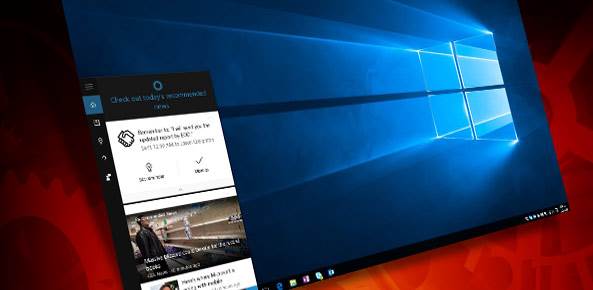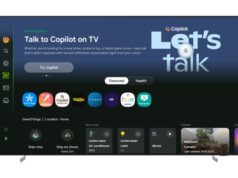Cortana, Microsoft’s digital personal assistant, just got a little more intelligent. Now, Cortana can help users do more than just track packages, request taxis and otherwise remind them of their never-ending to-do lists.
Will anyone care? Microsoft users most likely will, although there are no hard numbers on how many are using Cortana currently. “A fair amount of people, especially people using Windows 10 devices, are using Cortana,” Wes Miller, an analyst at Directions on Microsoft, told us. “People use it in the same way Apple consumers use Siri.”
Through the Windows Insider Program, new Cortana features are rolling out that will soon make their way to all Windows 10 users. One of the key features gives people more ways to set and keep reminders by taking Cortana cross-platform.
“People often make promises to do things in e-mail but may forget about them as the days go by and e-mails pile up,” said Marcus Ash, group program manager for Cortana. “Microsoft Research was pursuing an intriguing and powerful idea around this challenge — automatically recognizing when people make commitments to one another in e-mail messages and providing reminders.”
A Smarter Personal Assistant
Microsoft is also focusing on making calendar management easier with the next release of Cortana, adding features that make the software behave more like a true personal assistant. For example, Cortana will be smart enough to pick up on how a user likes to work, such as the hours during which that user typically prefers to hold meetings and the hours when that individual is most productive.
“So if you are a morning person like me, and you get a meeting request come through for 7 p.m., Cortana will alert you that you have a meeting outside of your regular times so that you can take action quickly to move it to a better time,” said Ash. “The same for last minute meetings. Say it’s 8 p.m. and your boss has sent you an urgent meeting request for 7 a.m. the next day. Cortana will alert you that there’s a meeting that may need your attention, so you can adjust your alarm and morning routine accordingly and stay on top of your day.”
Leaning on Technology
As Microsoft moves ahead, the goal is to make Cortana more and more like a real-life personal assistant that helps drive productivity. Although people use Cortana much like Siri, Apple’s personal assistant appears to be better liked than both Cortana and Google Now. In fact, Siri got the highest satisfaction scores at 81 percent, while Google Now got 68 percent and Cortana posted a 57 percent customer satisfaction score, according to a survey from Experts Exchange.
Cortana works cross-device, meaning users can use it on their smartphones, tablets, PCs and desktops running Microsoft software. Miller said it works well across the board.
“For people who are deeply ingrained in the Windows ecosystem this is good progress,” Miller said. “Microsoft will keep making improvements to Cortana in the same way Apple does with Siri and Google does with Google Maps. They will keep moving it forward.”
Ultimately, Microsoft and the other players in the personal assistant market are using these technologies to encourage people to become more interdependent with their devices — to lean on them for reminders, Miller said.
“There’s some reminder functionalities that Cortana can do, for example, that iOS is unable to do,” Miller said. “Microsoft is trying to make Cortana a bigger part of your lifestyle.”
Image Credit: Screenshot from Microsoft.







